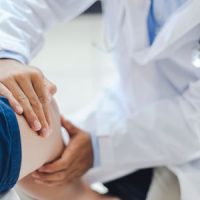Seeing an Orthopedic Doctor After a Work-Related Injury

Workplace injuries are common in the United States of America, Vermont not being an exception. According to the Bureau of Labor Statistics (BLS), in 2022, there were 2.8 million workplace injuries among employees in the private industry alone. Employees can suffer different types of injuries in sudden accidents or over time that significantly impact their well-being and ability to work. After suffering a work-related injury, seeing the right medical professional without delay is vital. Suppose you sustained a musculoskeletal injury while on the job. In such a case, it may be best to see an orthopedic doctor. In this article, we discuss what orthopedic doctors do, common work-related injuries orthopedic doctors deal with, and the benefits of seeing an orthopedic doctor after a workplace injury.
What Does an Orthopedic Doctor Do?
Orthopedic doctors or orthopedists are medical professionals who deal with conditions and injuries related to the musculoskeletal system. The musculoskeletal system includes bones, joints, muscles, ligaments, and tendons. Orthopedists use their expertise and knowledge to diagnose different musculoskeletal conditions and injuries. After diagnosing a condition or injury, orthopedic doctors develop and implement treatment plans. The ideal treatment plan depends on a patient’s injuries or condition. Treatment options can range from non-surgical interventions, such as physical therapy and medication, to surgical interventions.
Work-Related Injuries Orthopedic Doctors Deal With
Orthopedic doctors deal with a range of workplace injuries. These can be either traumatic or repetitive motion injuries. A traumatic injury is one that is caused by a sudden, forceful, or violent event. Traumatic injuries can result from vehicle accidents, slip and fall accidents, and other incidents that cause physical harm to the body. On the other hand, repetitive motion injuries, also known as repetitive strain injuries, occur as a result of the repetitive and prolonged performance of physical movements and tasks. Repetitive motion injuries often affect the musculoskeletal system.
The following are some of the work-related traumatic and repetitive motion injuries orthopedic doctors deal with:
- Fractures and dislocations
- Tendonitis
- Head injuries
- Neck injuries
- Carpal tunnel syndrome
- Rotator cuff injuries
- Muscle sprains and strains
- Spinal cord injuries
- Bursitis
- Tennis elbow
Conditions like carpal tunnel syndrome, tendonitis, and bursitis can develop in individuals whose work requires staying in one position or repeating the same motion over a long period, such as typing on a computer.
Benefits of Seeing an Orthopedic Doctor After a Workplace Injury
Seeing a qualified orthopedic doctor after a workplace injury can offer several benefits. The following are some of the benefits of seeing an orthopedist after a work-related injury;
- Diagnosis: An orthopedic doctor can use several methods such as an arthrogram, MRI, X-ray, or CT scan to diagnose your condition.
- Treatment: Orthopedists can offer various specialized treatment options for work-related injuries, including surgical and non-surgical approaches.
- Rehabilitation: An orthopedic doctor’s work does not end after they provide treatment. Orthopedists are also involved in the rehabilitation process.
- Workers’ compensation support: After suffering a workplace injury, you have the right to recover workers’ compensation benefits from your employer’s workers’ compensation insurance provider. An orthopedist can provide detailed documentation necessary to make your workers’ compensation claim a success.
Contact Us for Legal Help
If you have suffered a work-related musculoskeletal injury or any other workplace injury, contact our skilled Vermont workers’ compensation attorney at Sluka Law PLC for legal help.
Source:
bls.gov/news.release/pdf/osh.pdf
